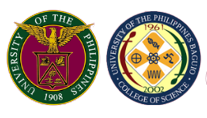The TLDC-CAR is the first Consortium under the Tuklas Lunas umbrella funded by the DOST-PCHRD which started in 2019. The proponents came from different Universities namely, Benguet State University, Saint Louis University and University of the Philippines Baguio as the lead HEI with Prof. Teodora D. Balangcod as the program head. The TLDC-CAR entitled “Documentation, standardization, and formulation of dosage forms from indigenous plants and microorganisms with anti-infective and anti-diabetic bioactivities” has six projects with the following project titles and project leaders:
- Project 1 – Teodora D. Balangcod, Ph.D. (UPB) - Potential Activity of Indigenous and Endemic Plant Extracts from the Cordillera Region against Staphylococcus aureus and MRSA. Check out their laboratory tour here.
- Project 2 - Roland Hipol, Ph.D. (UPB) – Mining the Fungal Diversity of Benguet for epipolythiodioxo piperazine (ETP) biosynthetic gene cluster for the Epigenetic Induction of Anti-infective bioactivity. Check out their laboratory tour here.
- Project 3 - Ashlyn Kim D. Balangcod, MS (UPB) - Online Database System for Medicinal Plants in the Cordillera Region
- Website link: https://cartldc.upb.edu.ph
- Project 4- Regina Lourdes B. Hipol, Ph.D. (SLU) - Resistance modifying agents from Microbiota and plants of Benguet
- Project 5- Louisa P. Pladio, Chem. Engr (BSU) - Standardization of Bioactive Non-toxic Herbal Preparations from Plants Indigenous to Benguet for Anti-diabetes
- Project 6 - Regina B. Hipol, Ph.D. (SLU) – The formulation and evaluation of capsules containing herbals with antidiabetic activity
The establishment of a Tuklas Lunas Development Consortium in the Cordillera is a significant contribution towards the exploration of what the biodiversity of the region can provide in the enhancement of healthcare in the country. Its primary objective is to develop and strengthen a system of collaboration to develop and enhance the capacity of research institutions in the Region. Additionally, with limited resources and expertise, the consortium will promote complementation among its consortium members.
To read more on the TLDC project click here.


